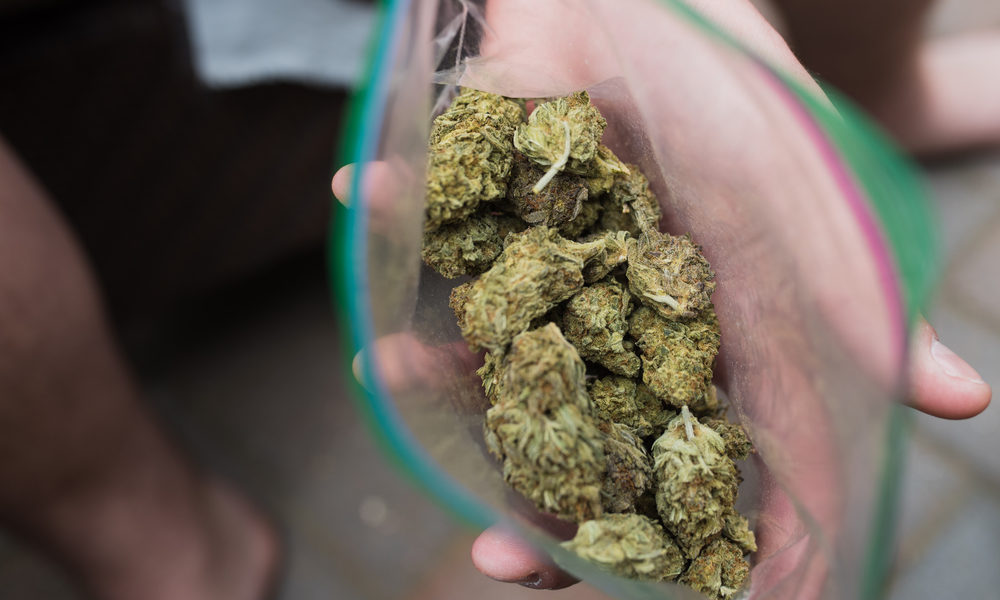While marijuana has been legal in New York for over a year, the state has lagged behind in opening licensed dispensaries. In turn, the black market has been given the opportunity to thrive and it’s not even hidden from the public eye.
Many head shops openly advertise that they sell cannabis. With some going as far as to boast it’s coming from California.
The biggest concern here is how far a black market can go. As California shows us, even six years after legalization, illegal cannabis remains highly in demand. Though, it’s worth noting that California’s biggest issue is illegal grow operations selling to the rest of the country (rather than illegal storefronts).
Naturally, New York shops are being met with legal consequences. However, New York leaders are being gentle on these operations.
Law enforcement has been given clouded instructions on how to deal with illegal operations. According to the state’s Office of Cannabis Management, “Since we didn’t think this was going to happen, we didn’t put anything in the bill that gave OCM and the police departments very clear-cut rules of the road to close them down.”
There’s been lots of debate on how to handle operations. Senator Liz Krueger believes police should have the right to seize illegal cannabis products. However, New York Mayor Eric Adams disagrees.
Some cities are attempting to take action into their own hands. For example, an initiative in Albany was developed that would give harsher penalties for illegal cannabis sales. However, this bill has since stalled.
It’s becoming clear many of these operations don’t see any risk coming from New York officials. For example, a number of illegal cannabis shops have licenses to sell alcohol, tobacco, and lottery tickets. Even with the risk of revoking these licenses, they continue to sell cannabis.
This is What Happens When You Sit On a Market as Large as New York
Naturally, this goes to show how profitable the cannabis industry is (in comparison to other industries). And officials know this.
New York cannabis alone is expected to generate $4.2 billion by 2027. With that number in mind (along with the growing concern about the black market), you’d expect lawmakers to be trying to get licensed facilities out there as quickly as possible.
Yet, we’re not seeing this. The reason for this delay is hazy, with some sources stating that New York’s placing an emphasis on small and medium businesses. Understandably, these entrepreneurs would need more time than interstate behemoths to get operations going.
Furthermore, such efforts go along with New York’s promise to prioritize this industry for those most impacted by cannabis incarceration.
Still, it’s out of the question that New Yorkers are hungry for legal weed. Some are crossing state lines into New Jersey and Massachusetts. Others are going to Native American reservations where it’s technically legal to sell.
And a number are just sticking to the black market, as they’ve been going to for decades.
Without the risk of legal penalties for mere possession, the average person doesn’t give much of a damn whether or not their weed is coming from a dispensary or a dealer. And the idea that lawmakers “didn’t think this was going to happen” upon legalization is simple naivety.
Chances are the black market will continue even when legal cannabis sales finally occur in New York. Being how much farmland is in the state, it would come as no surprise if many of these operators become suppliers for the East Coast.
Ultimately, this brings it back to illegal cannabis being a federal problem rather than a state issue. With so much demand and so little action coming from Capitol Hill, the black market will only continue to thrive all across the nation.

